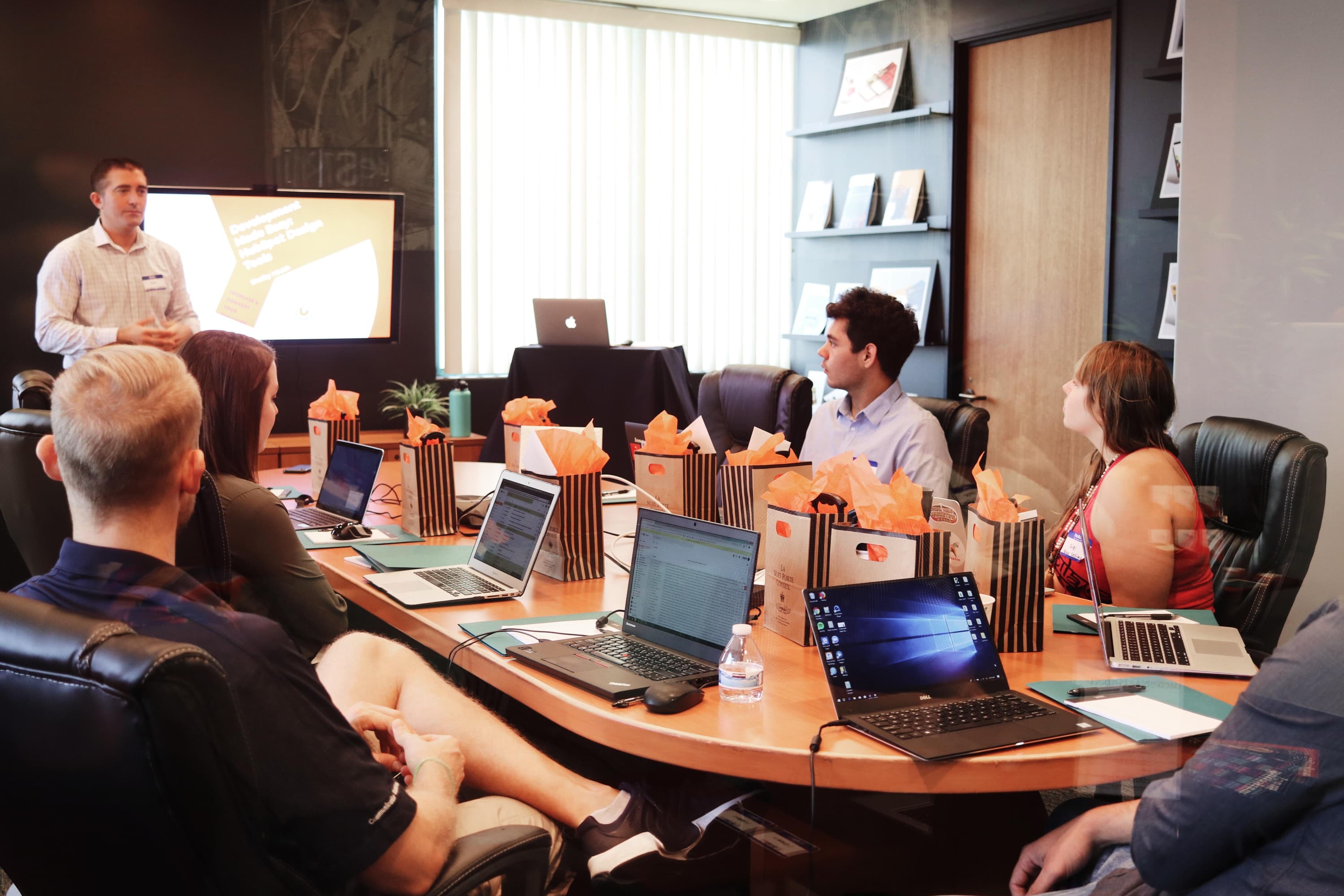How To Motivate & Support Employees in the Workplace



The years 2020 and 2021 have been a test for most organizations. Learning how to operate during a global pandemic has been challenging, and one of the most significant challenges has been centered around employee engagement.
Companies across every sector and industry have been disrupted, and people have been forced to instantly adapt to dramatic and life-altering changes. The added physical and emotional stress has caused employers to have had a challenging year engaging their teams and keeping spirits high.
Understanding the best way to support and engage employees is a primary concern for many executives. With their teams in perpetual isolation, this challenge has become increasingly complex — but it’s not impossible.
7 Steps for Creating an Engaged Workforce
As businesses grow and become more complex, employees are forced to adapt to constantly shifting work environments and will often confront a gauntlet of challenging obstacles. The teams that operate best under these circumstances are engaged, supported and well-prepared.
Happy employees have healthier minds and bodies. They’re more prone to critical thinking, and research shows that they’ll stick around longer.
Replacing a single team member can cost a company up to 200% of that employee’s annual salary. The reason? The hiring process is time-consuming, the vacant position strains the entire team, and it costs valuable time and money to recruit and train someone new.
To avoid this, companies must focus on the lives and well-being of their employees. That’s the best and most effective way to create a happy and engaged team. Here are a few strategies that will help.
1. Establish Transparency

An organization’s vision should be clear and concise. There should be no confusion or surprises about a company’s mission or goals. If something shifts, employees should know. If a company wants to promote engagement, it should first encourage inclusion and transparency.
The COVID-19 pandemic became a definitive test for a company’s ability to adapt and operate under incredible strain. It forced a lot of fast change, including the rapid incorporation of flexible work environments. A seamless transition to remote work is impossible without complete transparency between executives, supervisors and employees.
Transparency cultivates an environment of open and effective communication. It gives employees the time and space to feel comfortable enough to provide honest feedback and fosters a sense of community among colleagues.
2. Offer Career and Growth Opportunities
Companies should create new and exciting career opportunities to match their employees’ skills, aspirations and goals. Employees will not stick around if they think they’ve hit a dead end. In fact, many employees actually believe that it’s easier to switch organizations than it is to move up in their current company.
That’s a problem.
If organizations want to engage with their team and improve retention, they should create clear career advancement opportunities. Every team member should understand the process, know what’s expected of them and be challenged to take those next steps.
If companies are in the habit of offering continued training and education, they will be better positioned to create new career opportunities for emerging talent. They’ll also be better equipped to handle substantial growth and economic challenges.
3. Open Door Policies, Performance Reviews and Constant Communication

Effective communication is essential. If companies want to engage with their people, they must learn who they are, what they value and what’s important to them. Open door policies, feedback sessions and performance reviews are all great avenues to explore that may give insight into the lives and aspirations of employees.
Supervisors are understandably busy and a formal process for offering feedback may seem complicated, but companies should try to do this consistently. Team members want to know how they’re performing and what they can do to improve.
Providing specific feedback and offering it on a routine basis is a great way to ensure the lines of communication remain open. Providing positive and constructive feedback is also a great way to ensure that employees are seen, heard and recognized.
4. Invest in People
Levels of productivity remained the same on average during the pandemic, and for some, the productivity was even higher. However, there was a 44% decline in employee morale. The reason for that is apparent: It’s been an incredibly difficult year. People are isolated, stressed and increasingly burnt out.
Motivating employees to work isn’t the problem. Instead, companies need to shift their focus to the ever-important question: Are their people okay? That’s why organizations must enact policies and benefits programs that actively support and improve their employees’ mental, physical and emotional well-being. There needs to be intentionality around mental health, especially now.
Space should be given in meetings to talk about things other than the meeting’s agenda in order to allow people to talk about how they’re doing. Put agendas aside and have a conversation. Supervisors and executives who stay aware of what’s going on in their employees’ lives will be better equipped to help them stay engaged.
5. Promote Autonomy

People value autonomy, particularly in a flexible work environment. Since many organizations have willingly embraced remote employees, this is especially prevalent.
As team members gain experience and master their workflow, companies should give them the freedom to make their own decisions and encourage them to take risks. Risk leads to innovation and out-of-the-box thinking, which is often key to an organization’s growth and forward momentum.
6. Promote Team Building
Team building exercises are an incredible way to boost morale and improve employee engagement. The emergence of new technology has created new opportunities for businesses to create fun and digitally immersive team-building exercises, even if they’re remote.
This emerging tech also makes it easier for employees to collaborate. They can attend meetings, share work and socialize, even if they aren’t in the same physical building.
Remote work doesn’t have to be done in isolation. Companies should consider new tools and resources that allow employees to collaborate and communicate effectively, no matter where they’re located.
7. Offer Personalized Lifestyle Benefits With Fringe
If organizations want to actively engage with their employees, they should consider offering customizable lifestyle benefits. It is the best way to cater to the flourishing individual lifestyles of a diverse and engaged team.
Fringe’s platform offers personalized lifestyle benefits, so each individual employee can choose the benefits that will impact their lives the most. Schedule a demo and discover a unique and proven way to effectively engage and motivate employees.

.jpeg)
